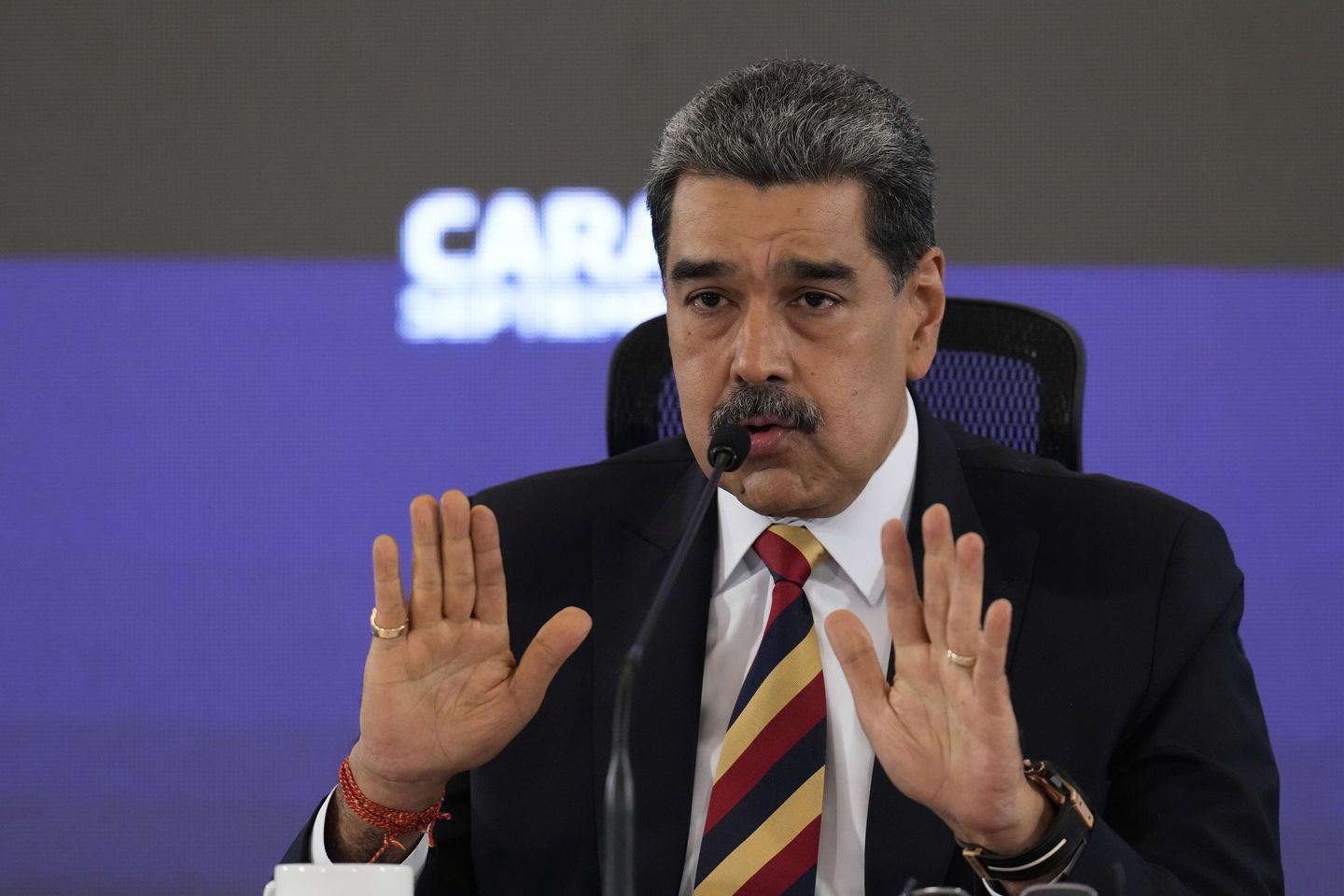
WASHINGTON — Secretary of State Marco Rubio on Wednesday defended a U.S. strike on a boat operated by an alleged Venezuelan gang and warned that such operations “will happen again.”
Rubio said previous U.S. interdiction efforts in Latin America have not worked in stemming the flow of illicit drugs into the United States and beyond.
“What will stop them is when you blow them up, when you get rid of them,” Rubio said on a visit to Mexico, adding that it is just the beginning of a larger U.S. operation in the region.
THIS IS A BREAKING NEWS UPDATE. AP’s earlier story follows below.
WASHINGTON — President Donald Trump on Wednesday justified the lethal military strike that his administration said was carried out a day earlier against a Venezuelan gang as a necessary effort by the United States to send an unmistakable message to Latin American cartels.
Asked why the military did not instead interdict the vessel and capture those on board, Trump said the operation would cause drug smugglers to think twice about trying to move drugs into the U.S.
“There was massive amounts of drugs coming into our country to kill a lot of people, and, everybody fully understands that,” Trump said while hosting Polish President Karol Nawrocki at the White House. He added, “Obviously, they won’t be doing it again. And I think a lot of other people won’t be doing it again. When they watch that tape, they’re going to say, ‘Let’s not do this.’”
Tuesday’s strike was an astonishing departure from typical U.S. drug interdiction efforts at a time when Trump has ordered a major Navy buildup in the waters near Venezuela.
Earlier Wednesday, Defense Secretary Pete Hegseth said on “Fox & Friends” that the strike could mark the start of a campaign against Venezuelan cartels that Trump blames for bringing fentanyl and other illicit drugs into the U.S.
Hegseth also charged that Venezuelan President Nicolás Maduro was running his country “as a kingpin of a drug narco-state.”
Hegseth said officials “knew exactly who was in that boat” and “exactly what they were doing.” But the Republican administration has not presented any evidence supporting Trump’s claim that operators of the vessel were from the Venezuelan gang Tren de Aragua and were trying to smuggle in drugs.
“President Trump is willing to go on offense in ways that others have not seen,” said Hegseth, who declined to detail how the strike was carried out.
Similarly, Secretary of State Marco Rubio said that such operations would continue if needed.
“We’re going to take on drug cartels wherever they are and wherever they’re operating against the interests of the United States,” he said Tuesday.
Trump and administration officials have repeatedly blamed the gang for being at the root of the violence and illicit drug dealing that plague some American cities.
The president on Tuesday repeated his claim – contradicted by a declassified U.S. intelligence assessment – that Tren de Aragua is operating under Maduro’s control.
In announcing the strike, he said the operation, which he said killed 11, was carried out in international waters.
Some international warfare experts are questioning the legality of the strike.
“Intentional killing outside armed conflict hostilities is unlawful unless it is to save a life immediately,” said Mary Ellen O’Connell, an expert on international law and the use of force at the University of Notre Dame Law School. “No hostilities were occurring in the Caribbean.”
Hegseth was opaque in his comments on Fox about whether Trump was looking to press for “regime change” in Venezuela.
“Well, that’s a presidential decision,” Hegseth said. He added that “anyone would prefer that” Maduro “would just give himself up. But that’s a presidential-level decision.”
The U.S. announced plans last month to boost its maritime force in the waters off Venezuela to combat threats from Latin American drug cartels.
Maduro’s government has responded by deploying troops along Venezuela’s coast and border with neighboring Colombia, as well as by urging Venezuelans to enlist in a civilian militia.








